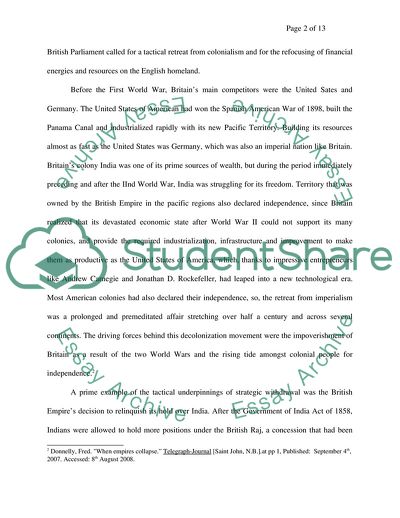Cite this document
(Was Britains relinquishment of Empire after 1945 a tactical withdrawal Coursework, n.d.)
Was Britains relinquishment of Empire after 1945 a tactical withdrawal Coursework. https://studentshare.org/history/1715568-was-britains-relinquishment-of-empire-after-1945-a-tactical-withdrawal-or-a-hasty-retreat
Was Britains relinquishment of Empire after 1945 a tactical withdrawal Coursework. https://studentshare.org/history/1715568-was-britains-relinquishment-of-empire-after-1945-a-tactical-withdrawal-or-a-hasty-retreat
(Was Britains Relinquishment of Empire After 1945 a Tactical Withdrawal Coursework)
Was Britains Relinquishment of Empire After 1945 a Tactical Withdrawal Coursework. https://studentshare.org/history/1715568-was-britains-relinquishment-of-empire-after-1945-a-tactical-withdrawal-or-a-hasty-retreat.
Was Britains Relinquishment of Empire After 1945 a Tactical Withdrawal Coursework. https://studentshare.org/history/1715568-was-britains-relinquishment-of-empire-after-1945-a-tactical-withdrawal-or-a-hasty-retreat.
“Was Britains Relinquishment of Empire After 1945 a Tactical Withdrawal Coursework”. https://studentshare.org/history/1715568-was-britains-relinquishment-of-empire-after-1945-a-tactical-withdrawal-or-a-hasty-retreat.


